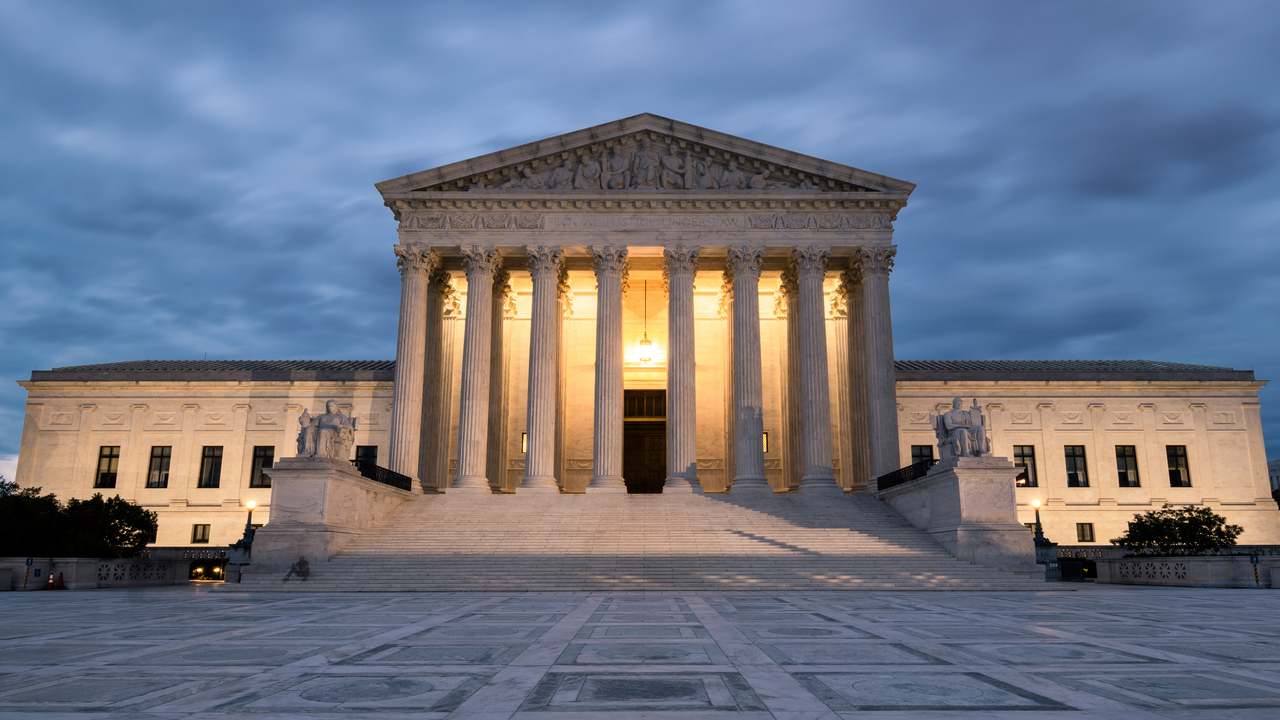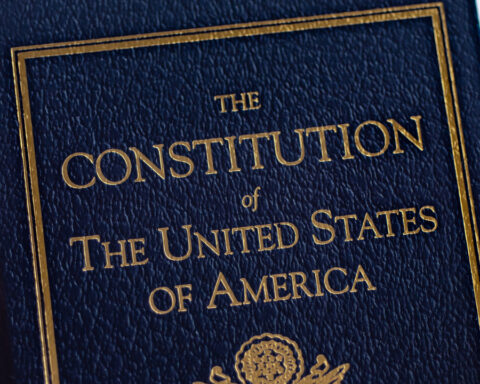“Now, hatred is by far
The longest pleasure;
Men love in haste
But they detest at leisure.”
— Lord Byron (1788-1824)
Last week in a federal courthouse in Brunswick, Georgia, the government of the United States of America successfully concluded a criminal show trial the purpose of which was to demonstrate the government’s supposed antipathy to the concept of hatred. This was the civil rights trial of the already convicted murderers of Ahmaud Arbery.
The case against them in the federal courtroom was not for murder. Murder of a private person by another private person is not a federal crime. The trial was for violating Arbery’s civil rights while animated by hateful thoughts.
Even though the Double Jeopardy Clause of the Constitution prohibits repeated attempts to convict, and even though the First Amendment articulates the value that all persons can think as they wish and say what they think, the already convicted defendants were tried for and convicted of thought crimes.
Here is the backstory.
Arbery, a Black man, was chased through a white neighborhood while he was peacefully jogging and murdered by three white supremacists just outside Brunswick on Feb. 23, 2020.
The defendants concocted a defense of both attempted citizen’s arrest and self-defense at their Georgia state trial for murder. They did not contest that they shot Arbery in the back with a shotgun.
Rather they argued the generic defense of justification.
Their testimony at their murder trial was as pathetic and unbelievable as is their moral grounding. There was no evidence that Arbery had committed a crime that would justify a citizen’s arrest, and there was no evidence that he posed a threat or used force of any kind which would justify self-defense.
All three defendants who participated in the chasing, filming or shooting of Arbery were quite properly convicted of murder and sentenced to life in prison. They had a fair trial, though their lawyers at times made repellent arguments to the court. Their convictions were just. Their sentences were appropriate.
But rather than sending them off to the Georgia state prison system, Georgia authorities permitted the feds to commandeer them.
A divided U.S. Supreme Court recently ruled in a case involving a felon in possession of a gun that, contrary to the text and history of the Constitution, the Double Jeopardy Clause only prohibits repeated attempts to convict for the same offense, but not for the same acts.
Stated differently, if the same acts — here, murder — violate both state and federal laws, there is no violation of the Constitution when both the state and the feds each try the defendant for the violation of their own statutes.
In a fascinating dissent, Justices Neil Gorsuch and Ruth Bader Ginsburg argued that the whole purpose of the prohibition on double jeopardy is to prohibit more than one trial and more than one punishment for the same criminal acts — a practice of British monarchs that repelled the Framers and that they sought to prevent.
What federal crime was committed by these deranged murderers? They assaulted Arbery’s civil rights animated by hatred for his race. Thus, the federal trial that just concluded centered upon the defendants’ thoughts — not their criminal deeds.
But all thoughts are protected by the First Amendment. The values underlying the amendment are that free thought is a natural right not subject to government approval and it is an essential aspect of a free people choosing their government. Hence, one may think as one wishes and say what one thinks and publish what one says — and one does not need the approval of the government or a consensus of one’s neighbors.
Notwithstanding this truism of constitutional law, philosophy and history, the feds — in order to expiate their own broad use of hatred to accomplish public policy goals — concocted a crime that makes it a crime to commit a crime based on hatred.
Hatred is a thought, and punishing thoughts is dangerous business, as it insinuates the government into the most private and intimate aspect of personhood — thinking — and it empowers the government to make evaluative judgments about which thoughts are evil and which are acceptable.
Of course, we know from history that those evaluations wax and wane with the passage of time and the government’s political needs. The federal government condoned slavery and hatred of Blacks and enforced the Fugitive Slave Act prior to and during the War Between the States. It permitted Jim Crow laws for 100 years. It fostered and encouraged hatred of Germans during both world wars and fomented hateful racial animus against Japanese during the Second World War.
It infamously incarcerated without charge 120,000 Japanese Americans in the 1940s, an odious constitutional monstrosity that was judicially tolerated because of vast hatred. For 50 years, the feds wanted us to hate the Soviet Union. Then the feds preached hatred of Saddam Hussein and, today, Vladimir Putin.
The prosecution of thought crimes is itself hateful and profoundly unconstitutional as is all federally inspired hatred. When the feds want to cleanse the marketplace of hateful ideas except for their own, they merely drive those ideas underground. Yet, the Supreme Court has ruled that hate speech — which demeans and verbally assaults persons due to immutable characteristics — is protected speech.
If hate speech is protected, how can the thoughts that animate that speech not be protected?
Please don’t misunderstand this argument. The Arbery killers are monsters, but they have natural and constitutionally protected rights like the rest of us. It is the duty of the judiciary to uphold those rights.
The whole purpose of an independent judiciary is to protect the lives, liberties and property of unpopular minorities from the grasping of the majority. Judges who fail to do this bring us one step closer to totalitarianism.
The government loves to hate. What thoughts will it hate next?
Photo by Geoff Livingston, GettyImages.
Judge Andrew P. Napolitano is the youngest life-tenured Superior Court judge in the history of the State of New Jersey. Now, Napolitano works as Fox News’ Senior Judicial Analyst, Judge Napolitano broadcasts nationwide on the Fox News Channel and the Fox Business Network, and lectures nationally on the U.S. Constitution, the rule of law, civil liberties in wartime, and human freedom. He also writes a week column, nationally syndicated by Creators.








